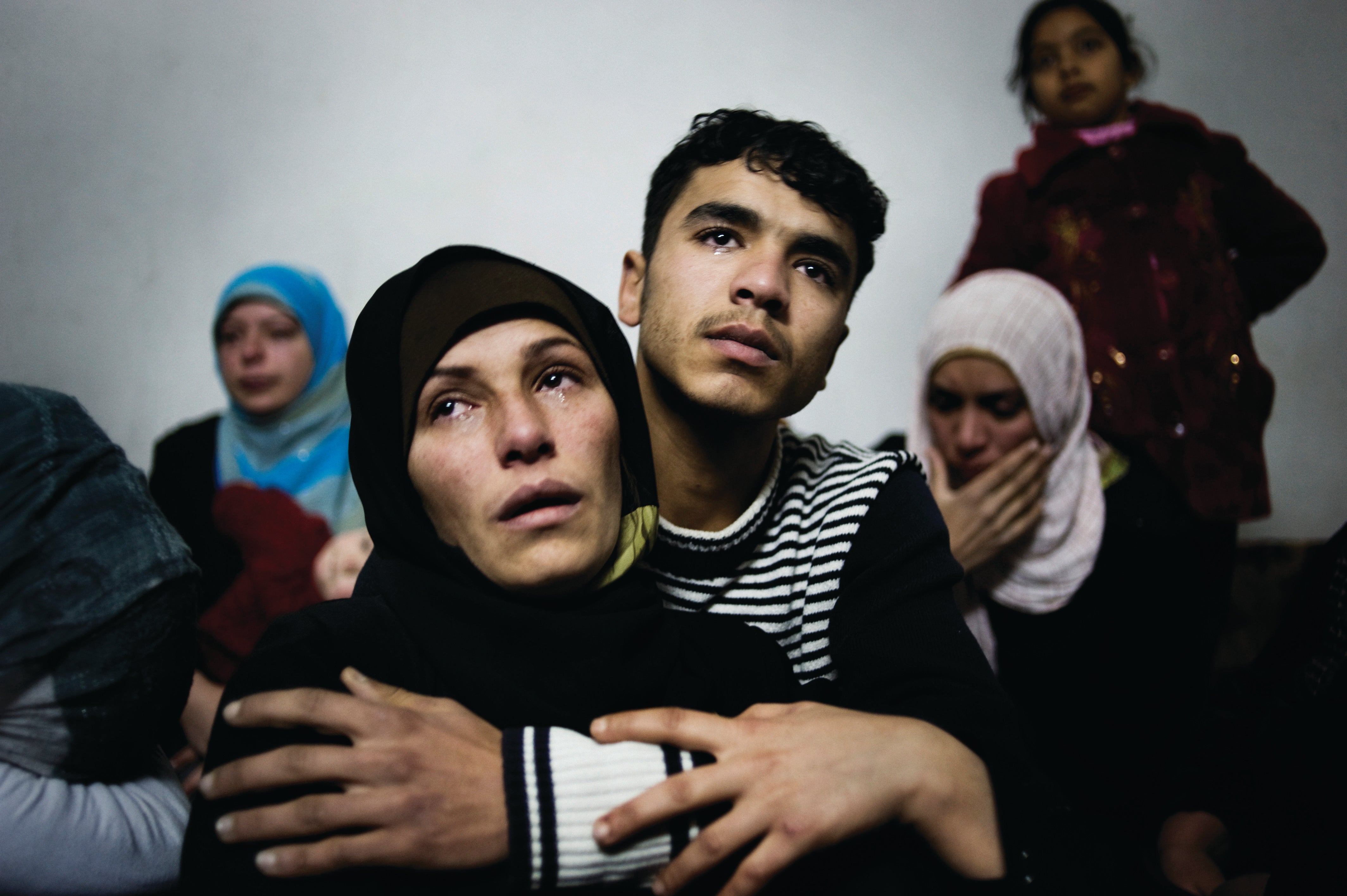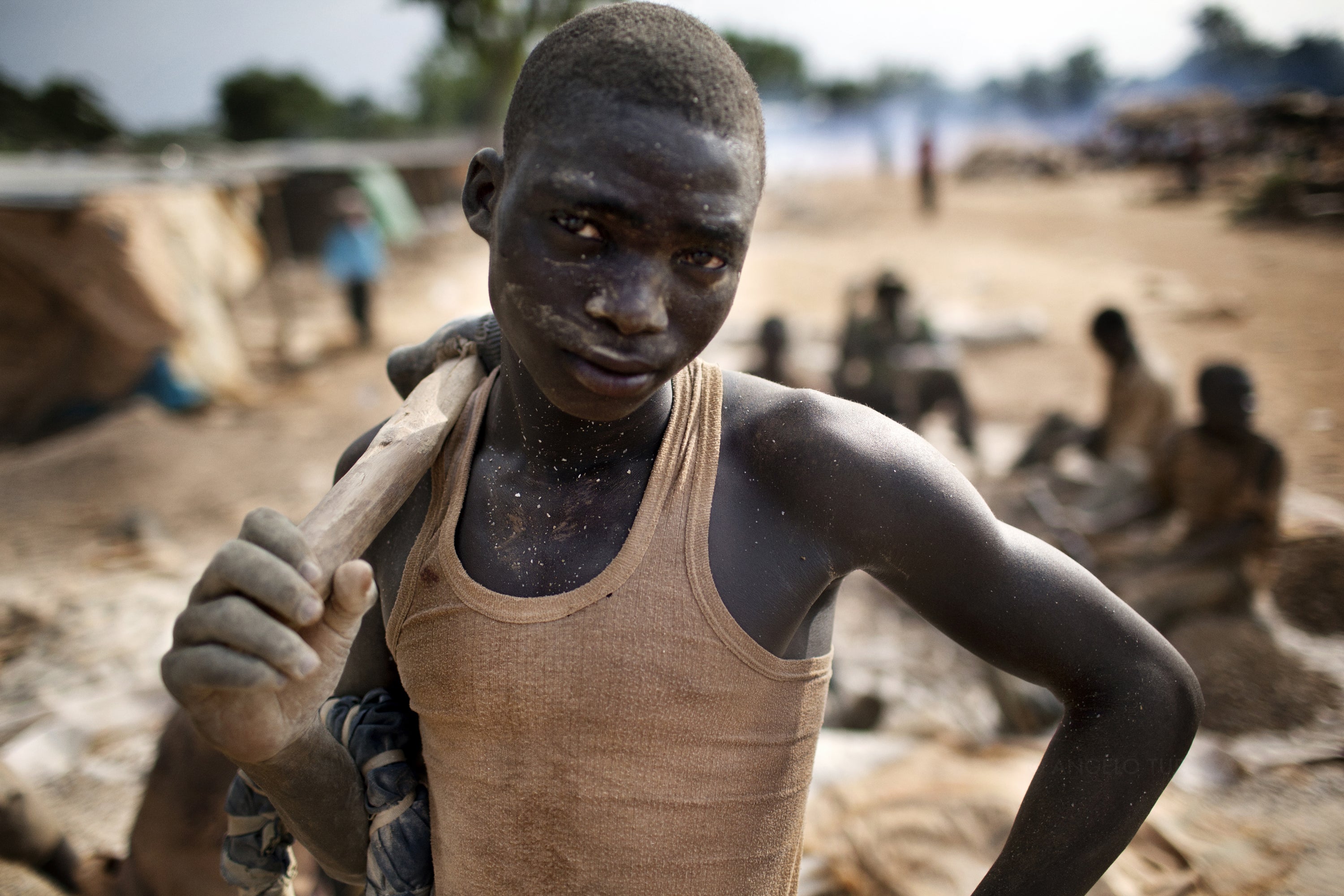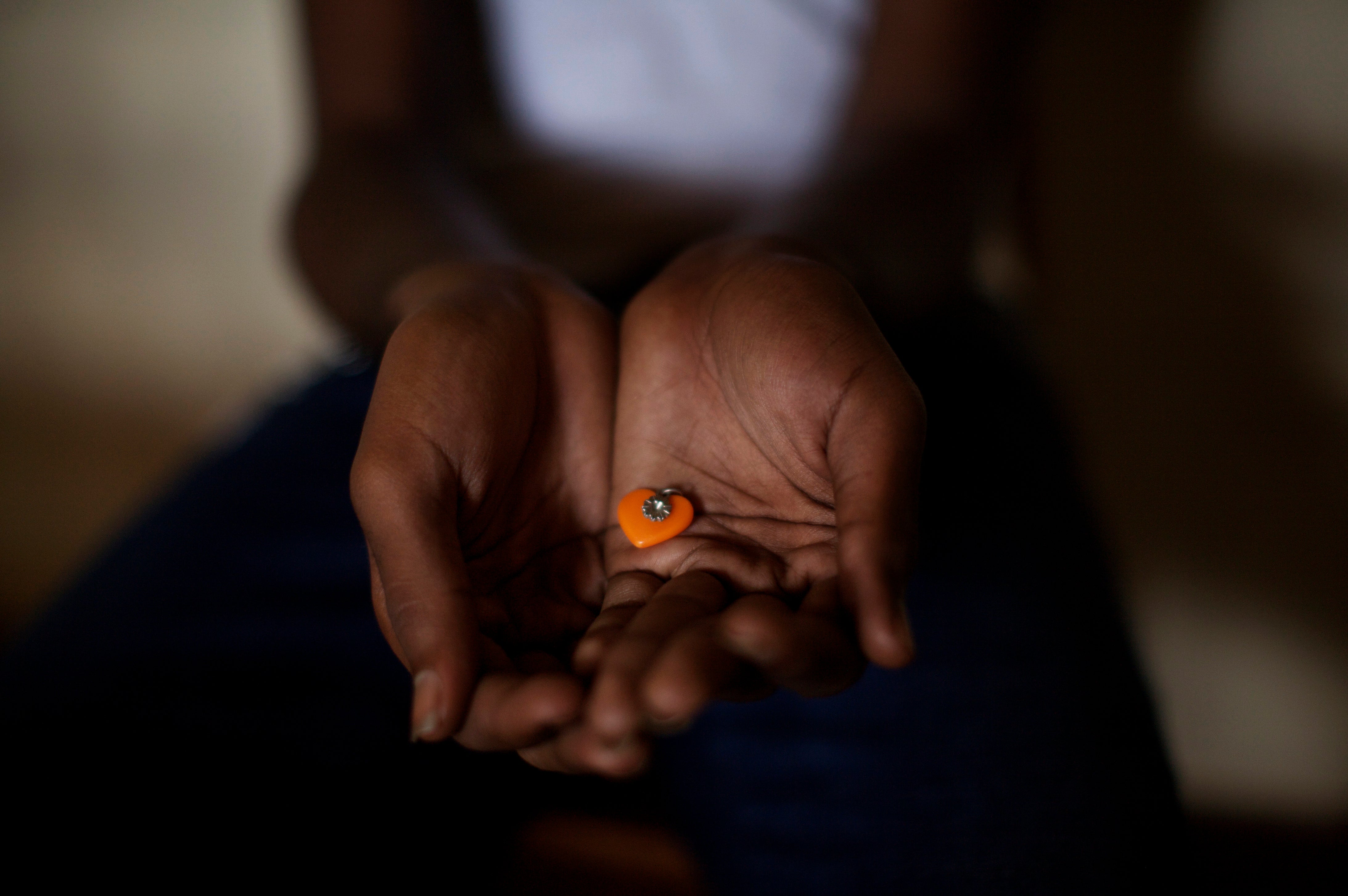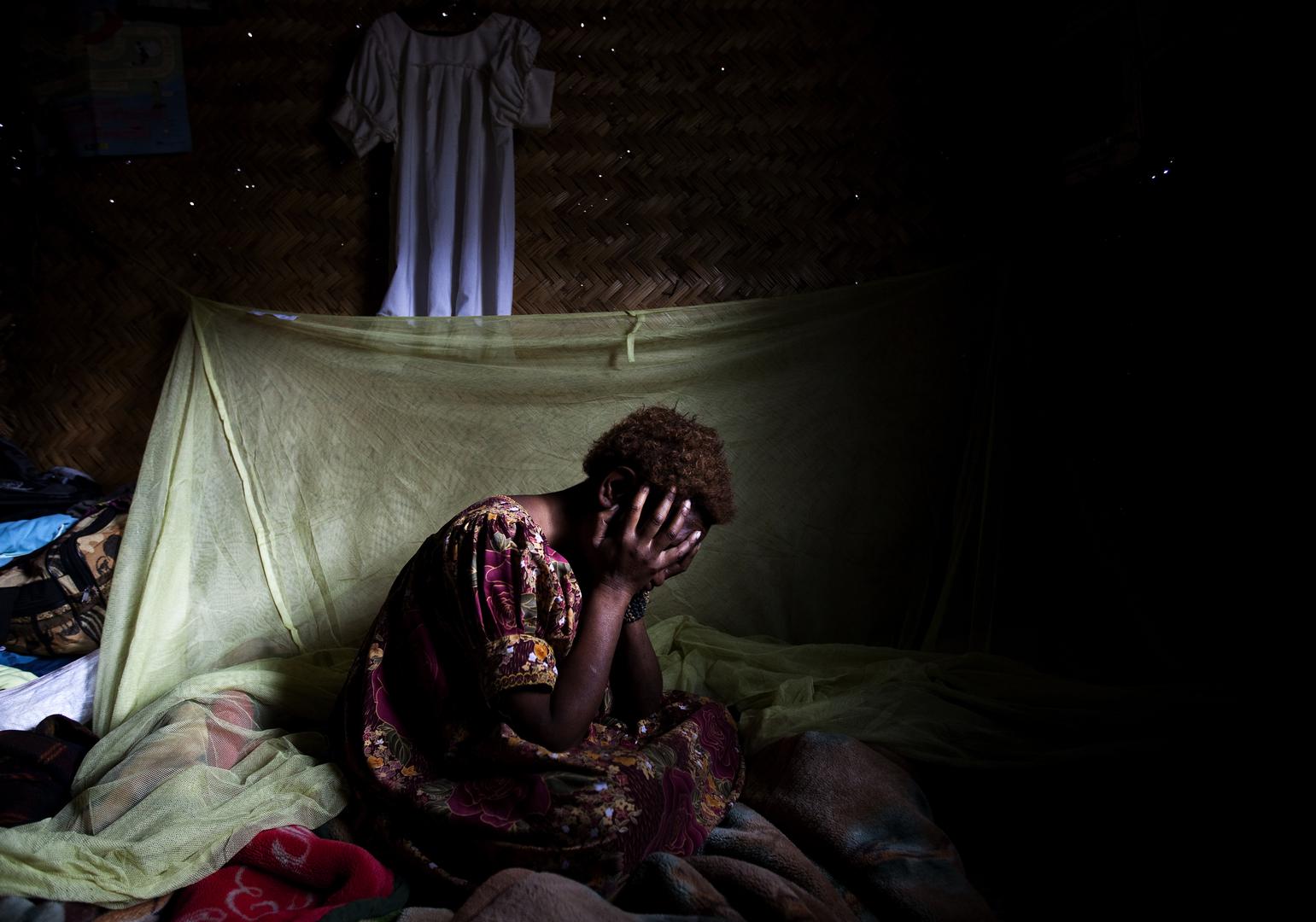Sudan’s relations with newly independent South Sudan deteriorated in early 2012, leading to clashes along the shared border in April. Although the two governments signed an agreement in September, paving the way for resumption of oil production, fighting between Sudanese government forces andrebel movements continues in Darfur, as well as in Southern Kordofan and Blue Nile states where Sudan’s indiscriminate bombardment and obstruction of humanitarian assistance forced more than 170,000 to flee to refugee camps in South Sudan.
Student-led protests in Sudan’s university towns intensified in response to wide-ranging austerity measures and political grievances. From June through August, riot police and national security officials violently dispersed a wave of protests, with hundreds arrested, at least 12 protesters shot dead, and scores of others detained and subjected to harsh interrogations, ill-treatment, and torture.
Sudanese authorities also harassed, and arbitrarily arrested and detained other perceived opponents of the government, including suspected members of the Sudan People’s Liberation Movement/North—which was banned in September 2011—members of other opposition parties, civil society leaders, and journalists. They also censored the press.
Protection Concerns on Border with South Sudan
Following South Sudan’s independence in July 2011, Sudan’s ruling National Congress Party (NCP) and the South’s ruling Sudan People’s Liberation Movement (SPLM) were deadlocked on a range of issues including oil production, debt, the status of the nationals of one country in the other, border security, resolution of border disputes, and the status of Abyei. Amid rising tensions, both countries accused the other of supporting or harboring rebel groups. South Sudan shut down oil production in February, seriously affecting the economies of both countries.
In early 2012, cross-border attacks, including aerial bombardments by Sudan into South Sudan, increased culminating in 10 days of armed conflict between the two nations in April at Heglig, an oil-producing area along the border. The armed clashes and bombing in and around Bentiu, Unity state, resulted in civilian casualties and displacement.
South Sudan withdrew under international pressure and both the African Union and the United Nations endorsed a roadmap for resumption of negotiations over post-secession issues. In the following months, though political tensions eased, sporadic clashes and bombing continued and caused injuries, and displaced civilians in Northern Bahr el Ghazal state, South Sudan.
In September, the two governments signed agreements on oil, borders, and citizenship among other issues, but did not agree on the status of Abyei or address the ongoing conflict in Southern Kordofan and Blue Nile, which has forced more than 200,000 people into refugee camps in South Sudan and Ethiopia.
Humanitarian Law Violations in the Southern Kordofan and Blue Nile Conflict
Fighting continued in Southern Kordofan and Blue Nile states between Sudan government forces and the armed opposition group, Sudan People’s Liberation Army-North (SPLA-North), which grew out of the southern rebel SPLA’s wartime presence in Sudan. In Southern Kordofan, ground clashes and government bombing forced hundreds of thousands of civilians to flee their homes. Many fled to caves and mountains where they lacked food, shelter, and hygiene. By November, more than 65,000 had fled to a refugee camp in South Sudan.
The conflict spread to Blue Nile state in September 2011, with ground fighting and government bombing forcing hundreds of thousands of people to flee their homes. As of November, more than 145,000, many of them travelling on foot for weeks or months, had fled to refugee camps in South Sudan and Ethiopia. The Sudanese government has refused to allow aid groups to access needy populations living in rebel-controlled areas in both states, effectively depriving civilians of essential food, medicine, and other basic services.
Conflict in Darfur
The Doha Document for Peace in Darfur, signed in July 2011 by Sudan and a Darfur rebel group, Liberation and Justice Movement (LJM), has had little impact in improving security or human rights in Darfur. The parties set up the Darfur Regional Authority, a body to implement the agreement, and appointed some LJM members to government positions. Donors, particularly Qatar, promise to fund early recovery and development activities.
Non-signatory rebel groups including Sudan Liberation Army (SLA) and Justice and Equality Movement (JEM) have joined with SPLA-North in a national coalition, known as the Sudan Revolutionary Front (SRF). Clashes between rebels and government forces, and government bombing of rebel-held areas, continued particularly in North Darfur and East Jebel Mara areas. In September, fighting between government-aligned militia groups and rebels near Hashaba, North Darfur led to the death of dozens of civilians. On November 2, government forces attacked Sigili village in North Darfur, killing 13 civilians.
The Sudanese government continued to deny peacekeepers from the United Nations-African Union Mission in Darfur (UNAMID) access to much of Darfur. Despite such restrictions, UNAMID reported on the government’s arbitrary arrests and detentions of real and perceived opponents, and on patterns of sexual violence. A state of emergency, empowering governors to detain people indefinitely without judicial review, remains in place throughout Darfur.
Lawlessness and insecurity hampered the work of the peacekeepers and aid groups. Armed gunmen attacked and killed peacekeepers, including four Nigerians in October, abducted UNAMID and humanitarian staff and carjacked dozens of vehicles. The vast majority of Darfur’s displaced population, estimated around 2.5 million people, remain in camps in Darfur and Chad.
Justice and Accountability
Seven years after the International Criminal Court (ICC) issued arrest warrants or summons to appear against six individuals, Sudan continued to refuse to cooperate with the ICC or to meaningfully prosecute the crimes in its own courts. The UN Security Council had in 2005 referred the situation in Darfur to the ICC, which issued the warrants or summons to appear against President Omar al-Bashir and five others, on charges of war crimes, crimes against humanity, and genocide, although the charges were not confirmed against one of the suspects, Bahar Idriss Abu Garda.
Despite the appointment of a fifth special prosecutor for Darfur in June, Sudan has done little to promote accountability. It has made none of the justice reforms recommended in the 2009 report from the AU’s High-level Panel on Darfur, headed by former South African President Thabo Mbeki.
Crackdown on Protests
In late 2011 and early 2012, security forces violently dispersed peaceful protests across the country, often at universities. Students protested against price increases student elections, and in solidarity with the Manaseer community’s demands for compensation for their forced displacement from land in Red Sea state by the construction of the Merowe Dam in 2008.
In June and July, as the economic consequences of the oil-shut down surfaced, student and youth-led protests increased in number and size. The protests were larger than the Arab Spring-inspired protests in early 2011, despite the lack of official backing from major opposition parties. Starting June 16 at Khartoum University, protests were staged on a near daily basis in dozens of towns against the government’s austerity measures and other policies.
Riot police and national security forces used batons, sticks, rubber bullets and in some cases live ammunition to disperse the gatherings. Many protesters were wounded and required medical care. In South Darfur, on July 31, the security forces killed 12 protesters including several children under 18 years old. National security forces, often in pick-up trucks, arrested hundreds of protesters and people who did not participate directly in the protests, such as suspected organizers, political activists and prominent members of the opposition.
While many were released within days, a large number remained in National Security Service (NSS) custody for several weeks or months. Members of the activist group Girifna (We are fed up) were particularly targeted for arrest and detention. One Darfuri member, Rudwan Daoud, was charged with espionage and crimes against the state, punishable by death. Following international pressure, charges were dropped and he was released. Most of the student protesters were released in mid-August before the end of Ramadan.
Dozens of released detainees reported being subjected by national security officers to severe beatings, sleep deprivation, and other forms of torture during interrogations. Many were forced to provide their Facebook and email addresses passwords, and to reveal the names and whereabouts of political activists. Upon their release, detainees were made to renounce their political activism, promise not to engage in political activity, or agree to work as informants for NSS.
Political Repression and Media Restrictions
In addition to protest-related harassment, the NSS targeted opposition party members, particularly SPLM-North, which was banned in September 2011. Security officials also targeted human rights workers, civil society members, and perceived opponents for harassment, arrest and detention, particularly during the period that protests were being held. For example, in July, a group of more than 13 women activists were held for more than a month in Omdurman women’s prison, in poor conditions.
Many people were detained because of their real or perceived links to the SPLM-North, which was banned in September 2011 when war broke out in Blue Nile state, or as a result of their human rights activism. Abdelmonim Rahama, a poet and former adviser to the Blue Nile state government, spent 11 months in detention in Sennar state. Nuba human rights activist, Bushra Gammar, was released after more than one year in detention without charge, while Jalila Khamees, a Nuba schoolteacher and human rights defender, was arrested from her home in Khartoum in March 2012 by national security officials, and in July was charged with crimes against the state that could carry the death sentence.
In the wake of fighting with South Sudan’s army at Heglig in April, Sudanese authorities stepped up hostile rhetoric and political repression. NSS summoned prominent Sudanese journalist and human rights defender, Faisal Mohamed Salih, for several hours of questioning and ordered him to report back daily for nearly two weeks in connection with his comments critical of the government on Al Jazeera Arabic television.
Authorities censored articles, confiscated newspaper editions, and blacklisted more than 15 journalists for reporting on sensitive topics, including a church-burning incident in April prompted by a radical imam’s hostile rhetoric. National security officials also routinely instructed editors to refrain from publishing criticisms of the president or the armed forces, the economic impact of the oil shut-down, or the conflicts in Southern Kordofan and Blue Nile.
In May, the Humanitarian Aid Commission (HAC) suspended or expelled seven humanitarian organizations from working in Eastern Sudan. In September, HAC began summoning local organizations that receive foreign funding, in an apparent effort to cut off foreign funding of civil society groups.
Key International Actors
Following the armed hostilities at Heglig in April, the AU and UN, through Security Council Resolution 2046, endorsed a roadmap for cessation of hostilities and resumption of negotiations on post-secession issues. The AU’s High-Level Implementation Panel continued to facilitate the negotiations. Ethiopia remains an important actor in these negotiations despite the death of Prime Minister Meles Zenawi in August.
In September, Sudan and South Sudan reached a deal on oil production arrangements, border management and citizenship, but remained deadlocked on the status of Abyei. Sudan and SPLM-North did not enter into direct negotiations. While the parties did accept the tri-partite proposal submitted by the AU, UN, and League of Arab States to permit humanitarian access to the affected populations in the two states, Sudan has refused to implement it.
The UN extended the mandate of UNAMID for a fifth year, while adopting plans to downsize its military and police components. Its Joint Special Representative, Ibrahim Gambari, finished his term July 31 and has yet to be replaced. In the contested territory of Abyei, the UN Interim Security Force for Abyei (UNISFA) continued to deploy and prepare for its role in wider border management, pursuant to 2011 agreements.
Sudan did not grant the UN’s Independent Expert on the situation of human rights in the Sudan access to Darfur and he was therefore only allowed to hold meetings in Khartoum. In September, the UN Human Rights Council strengthened the mandate and called on Sudan to allow the expert to access to the entire country including conflict zones in Darfur, Southern Kordofan and Blue Nile.
While al-Bashir was welcomed in Egypt and Libya this year, ICC member Malawi indicated it would arrest al-Bashir if he entered that country to attend the AU summit scheduled to take place there in June 2012. As a result, the summit was moved to Addis Ababa, Ethiopia.




